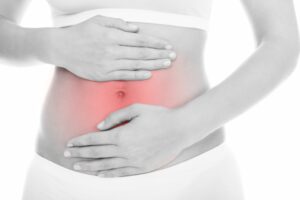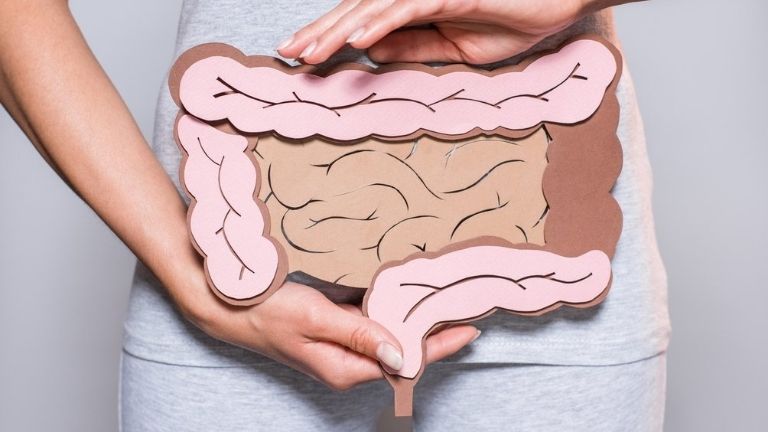Brittle nails and hair? Feeling puffy and bloated? Leyla Moudden, Naturopath and Director of Education at Enzymedica UK reveals 7 signs you’re not digesting protein properly
Protein is an essential food group and our primary source of amino acids.
It acts as the body’s building blocks; if you were to look at the human body under a microscope, you would see an elaborate and dynamic network of cells that use amino acids for everything it makes and repairs – whether it be our heart, connective tissue such as blood cells, or our immune or hormonal systems.
eating protein is critical to our survival
Therefore, eating protein is critical to our survival, but the real benefits rely on digesting that protein effectively.
Your body has many ways of telling you when something is wrong, and here are some signs that may indicate you may not be digesting protein properly…
Sign #1 Low stomach acid
Stomach acid is critical for protein digestion. It triggers a sequence of events that end with the release of digestive enzymes; acting like scissors to cut the protein into smaller molecules, it unlocks the nutrients and amino acids it contains.
Episodes of heartburn, slow bowels, finding food or grease in your stools, or a feeling that food sits in your stomach too long, are all possibly linked to low stomach acid.
try supplementing your meals with a digestive enzyme
When this happens, your stomach does not release digestive enzymes. If you have constipation, diarrhoea, flatulence, wind or bloating, it could mean you are not digesting protein properly.
You could try supplementing your meals with a digestive enzyme blend such as Enzymedica Digest GoldTM.

Sign #2 Brittle hair and nails
Hair and nails are made of the protein keratin, which we produce in our body.
The human body uses 18 amino acids to make keratin; some of these we produce, and others we must obtain through eating.
If you have brittle hair and nails, aim to eat one gram of protein per 500 grams of body weight and choose clean proteins high in amino acids such as quinoa, eggs, grass-fed and organic meats, lentils, beans and pulses.
Sign #3 Mood swings
The brain itself is made of fats, but the signals it sends for mood regulation are small proteins called neurotransmitters.
These chemical messengers have specific roles, serotonin for example is known as the love and bonding neurotransmitter, whereas adrenalin drives our stress response.
chemical messengers have specific roles
Neurotransmitters give us feelings of reward, pleasure, excitement, alertness, and activity.
If you are finding it difficult to focus, concentrate, calm down or muster up enthusiasm for activities you usually enjoy, looking at your protein intake and digestion can help.
Sign #4 Foul smells
There are many reasons for foul-smelling wind, and one of them could be undigested protein lurking in your digestive tract.
Suppose you have recently increased your dietary protein – perhaps you’ve started a ketogenic diet, or you are using protein powder to support your fitness goals, you might have noticed a change in the scent of your wind.
This may be because you are not properly digesting your fats and proteins. Fats and proteins that are poorly digested or absorbed, end up fermenting and decaying in the digestive tract, leading to a foul-smelling odour.
Sign #5 Catching every cold going
If you always avoid everyone with a runny nose because you fear catching a cold, you may have a protein problem.
Your immune system is fuelled by amino acids from protein and this network of cells work hard to control inflammation and pathogens and helps to create antibodies.
Healthy proteins will keep your immune system replenished, help your defences and aid speedier recovery from sickness.
Sign #6 Water retention
Water retention is when we feel swollen, heavy, or puffy. It can be triggered by consuming too much salt, hormonal changes, or medication.
A little-known fact about water retention, is that it could also be due to low protein intake, or poor protein digestion.
Water retention is when we feel swollen, heavy, or puffy
Every cell in the body uses protein as part of its structure and this is designed to maintain a healthy fluid balance.
When protein is low, either because you are not consuming enough, or are not digesting well, fluid balance can get out of kilter, resulting in water retention.

Sign #7 Difficulty gaining or retaining muscle
Muscles store protein in the body, so we need proteins to build muscle. When we are low on dietary protein, the body will break down muscles to release the stored protein.
Muscle weakness is a clear signal that protein is insufficient, either due to not eating enough protein, or lacking the digestive enzymes needed to break it down effectively.
More Healthista Content:
6 smart ways to hydrate your dry skin this January
6 ways to overcome self-doubt – an expert guide
Looking for permanent weight loss? Top dietitian says answer lies in your DNA
How to be successful: 8 ways to master your physical intelligence
4 ways the menopause affects your skin
Like this article? Sign up to our newsletter to get more articles like this delivered straight to your inbox.



















































